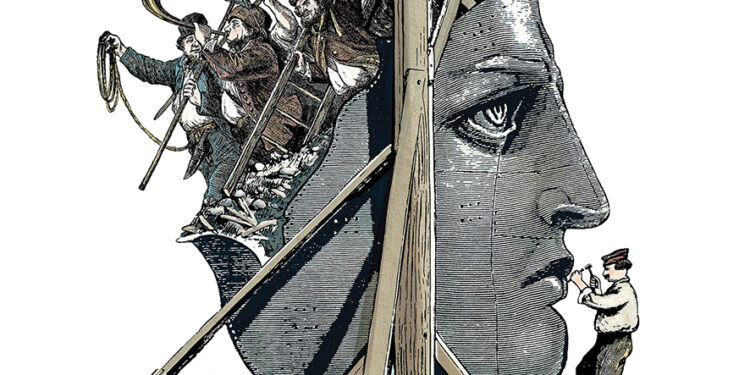I have always wondered how much a communication style, in other words, the manner of using a tongue, influences society and its way of life. It shapes our social actuality, dynamics of interpersonal relations, the power of interaction between various social layers and forces, the cultural and educational characteristics of people and communicative arrangements.
The vocabulary we use, the tone we entertain and the accents we make while conversing with our fellow citizens, especially in the political arena, determines the level of social unity and reliability – it either creates societal uniformity or gives impetus to social division, thus building the stereotypes in every walk of life that become deeply rooted in our lives for years if not for generations.
There is a perpetual interplay between society and the language it uses to keep itself going, influencing the way we are trying to distinguish right from wrong and find our niche in a bad-language ridden and ominously churning live-and-let-me-live mechanism.
There exists a constant interplay between society and the language it employs to sustain itself, shaping how we attempt to discern right from wrong and find our footing in a world plagued by corrosive language and a dangerously spinning live-and-let-me-live mechanism. Sometimes, the influence of language becomes so intense that it determines the pace and quality of national development. At other times, it completely loses its grip on people. Consider the words “Treason” and “Traitor,” for example. In Georgia’s socio-political exchanges, these terms are so frequently deployed that they’ve been stripped of their original force. Nearly every political figure is branded with one or both, in hopes of damaging their public image. Yet, due to relentless overuse, these terms have lost their essence and the power to truly move hearts and minds. They’ve even taken on an air of mockery. And that’s just one instance. A host of other expressions from our daily political lexicon are so worn out that they’ve become meaningless in the ideological landscape.
Judging by the everyday political discourse reflected through our mass media, there is a clearly revolutionary undertone among forces keen on seizing control of national governance. So much so, that the revolution’s very date has been loudly and widely proclaimed—October 4th—coinciding with the day of local elections. Of course, in an era of free speech and democratic politicking, such developments are not beyond the realm of possibility. We are all entitled to express and act upon our ideas, so long as we remain within the bounds of the thoroughly enforced rule of law. What stands out, however, is the style of language being used to articulate this potentially emerging revolutionary metamorphosis.
Apart from that, the revolutionary mood, including the harsh and funny language of communication of the revolutionaries, is often in direct contradiction with the ideology of those oppositional leaders who hate revolutions and are peacefully, fairly, honestly and scrupulously getting ready for the upcoming elections, harboring certain political chances for them.
Paradoxically, the very vocabulary intended to galvanize revolutionary sentiment is often so odd and laughable that it’s hard to believe a serious upheaval could be orchestrated through such linguistic efforts.
Some of these pre-revolutionary speeches are so absurd and comedic that one cannot help but wonder: how exactly do these aspiring revolutionaries expect to effectively communicate their message and inspire meaningful change?
It is a well-known and commonly accepted notion and the linguistic style and content have an uncanny effect on the revolutionary mood and prospect. So, why can’t those valiant and openly boasting revolutionaries maintain the linguistic norm that works not to the detriment, but to the benefit of their final goal? They hopefully know why!
Op-Ed by Nugzar B. Ruhadze














